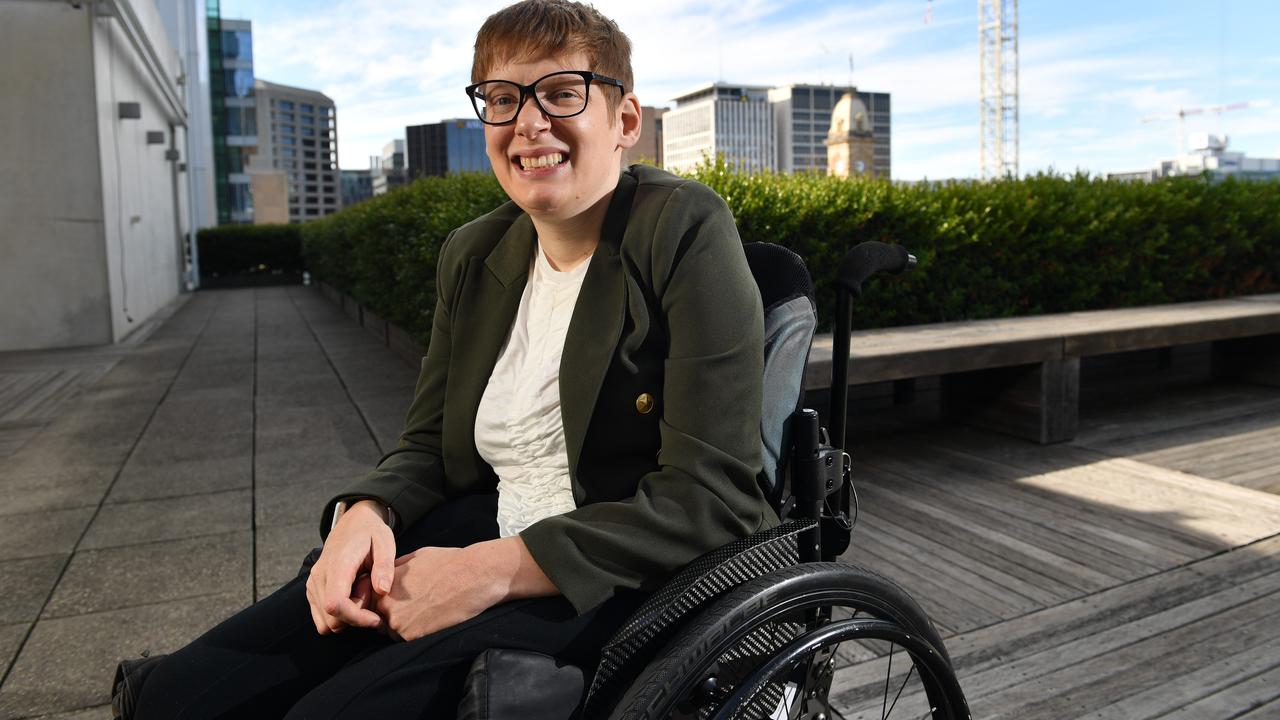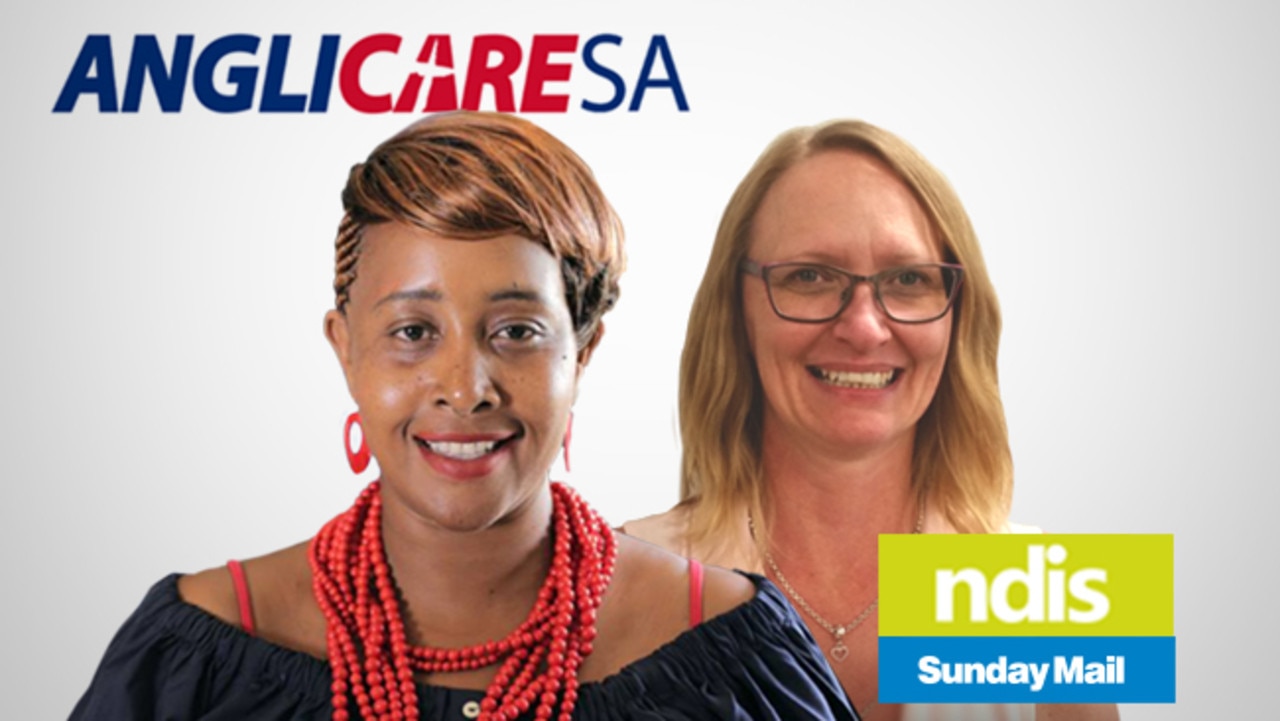Innovative speech technologies have opened up a world of literacy, friendship and spelling tests for little Harry Banks
INNOVATIVE speech technologies help little Harry not only talk, but open up a world of literacy and friendships.

HARRY Banks points and then scrolls through icons on the small screen lying in his lap. He presses a button and raises his head as the words “Shake it off” are spoken for him through his speech-generating device. What a typical seven-year-old; reeling off Taylor Swift lyrics. But, really, there’s nothing at all typical about Harry.
Six years ago – just three weeks shy of his first birthday – Harry fell from a kitchen bench while being looked after by a carer, causing a severe traumatic brain injury. His injury was catastrophic and after being rushed to the Women’s and Children’s Hospital in a coma, he was not expected to survive.
But survive he did. And Harry – who now has hemiplegic cerebral palsy, medication-controlled epilepsy and is largely non-verbal – has just started Term 2 of Year 1 at his local primary school.
His mother, Michaela Banks, couldn’t be more proud of her son who has not only defied the odds, but is teaching all those around him about patience, determination and inclusion.
And he just scored full marks on a spelling test using a modified keyboard.

“For most kids there is that typical path: they go to school, they learn to read and write, then they decide whether they want to go to uni or whatever,” Banks says. “But for kids like Harry, there haven’t been those expectations. But now, for me as a parent, to be able to say: ‘He’s going to be literate!’, it’s life-changing for a kid like him.
“Assistive technologies mean everything to us. Without them, I wouldn’t know what he was thinking, what he wants ... he couldn’t go to his local primary school. All of this is possible because of his communication systems. And he needs a few of them. He can’t just have one thing and that addresses everything depending on the situation.”
Harry speaks using sign language, a few words (including up, again and mum), two speech-generating devices and two special books of symbols (called a PODD: Pragmatic Organisation Dynamic Display).
Designed in Melbourne by a speech pathologist and made locally for Harry by Two Way Street, the PODD is a means of selecting and organising symbols so that people with complex communication needs can communicate more easily with others. Harry has an extensive one and a smaller one that has been designed for school.
“At school, the demands on him are so great and he’s doing so much learning that he uses a simple PODD so he doesn’t need to think too much about where the words are,” Banks says. “But that’s all taken the year (of Reception) to figure out.”
The PODD is updated as more words enter his vocabulary. This is the world of AAC, for people who use Augmentative and Alternative Communication as their way of speaking. For Harry, his technologies are funded through the NDIS, and they each combine to give him a voice in a way that is opening up a world of possibilities.
After Harry’s accident, the Banks family weren’t sure he would ever talk again. But today, he can answer questions from doctors at all his medical appointments, he can talk to his friends and order his own babycino at the nearby cafe.
The basketball-loving youngster, who attends mainstream school with the help of a full-time school support officer, is given the same work as his peers.
“His teachers presume competency and expect the same quality from Harry as his peers, but just a different quantity. He takes part in all the spelling tests, but while the other kids do 10 words, he does six.
“The other kids are also learning from Harry in so many different ways. For example, you watch them as they are all coming back from the library, and there is a staircase and a ramp, in Harry’s class, they all go down the ramp. I think there’s a really important awareness and empathy that his classmates are developing ... the fact that disability is not something scary.”
And as Harry proves daily, anything is possible.
Michaela Banks charts her son’s ACC progress on her blog Give the Boy a Chance. Read their journey at: givetheboyachance.wordpress.com


